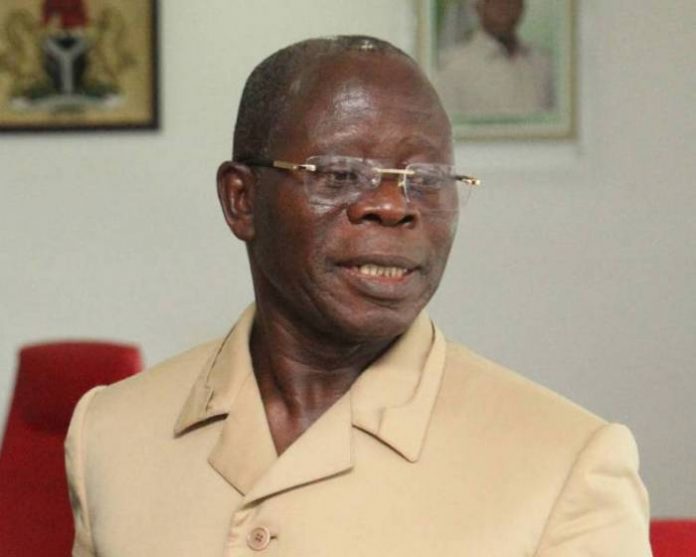In a bid to address the concerns raised by Nigerians over the removal of the petrol subsidy, Adams Oshiomhole, former governor of Edo, has revealed that the federal government has developed a comprehensive plan to cushion the effect of this decision on the populace.

This revelation came to light after a meeting held on Sunday at the presidential villa in Abuja, where a federal government delegation, including Oshiomhole, engaged in discussions with representatives from the Trade Union Congress (TUC).
Following the meeting, Festus Osifo, the President of TUC, confirmed that the union had submitted a list of demands to the federal government. He also expressed the union’s commitment to continuing the dialogue on Tuesday, demonstrating their dedication to finding a favorable resolution.
Dele Alake, the spokesperson for the government’s delegation, shed further light on the demands put forward by the TUC. These demands aimed to alleviate the impact of subsidy removal and included proposals such as an increase in the minimum wage and tax holidays for specific categories of individuals.
During an interview after the meeting, Oshiomhole highlighted the government’s recognition of the immediate consequences resulting from the subsidy withdrawal. He stressed the importance of finding an immediate solution, given the discomfort experienced by the populace, particularly the most vulnerable groups.
The former governor proposed utilizing the savings generated from the subsidy removal, either through direct allocation or borrowing, to improve wages and offset the increased cost of living. Oshiomhole emphasized that this solution was both legitimate and achievable, urging swift action instead of lengthy negotiations that could further aggravate the situation.
Oshiomole said, “This president recognizes that the effect of the withdrawal is already here, people are already going through some level of discomfort and therefore there has to be an immediate solution to it”.
“Now that immediate solution is what we discussed and the fact that we are meeting on Tuesday again shows that clearly, we realize that this is not one of those things you want to buy time because it has a real negative impact, on particularly, the most vulnerable group.
“But we have a solution to it because you are going to make savings, so take from that savings or even if it is borrowing. So, whatever it is, you can leverage some revenue and improve wages to cushion the cost of living. I think it is legitimate, I think it is doable, it is not something that you want to spend two to three months negotiating.
“Because those savings will go into the federation account which will be distributed among the three tiers of government and so every tier of government will have more money and should be able to meet the consequential wage increase,” he added.





Comments are closed.